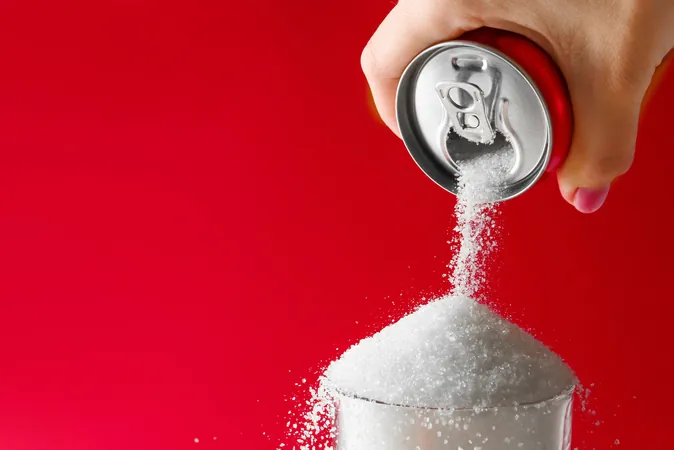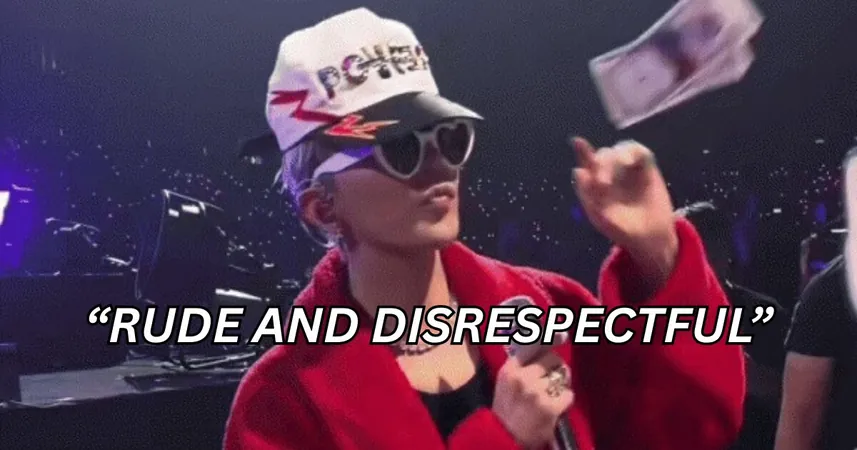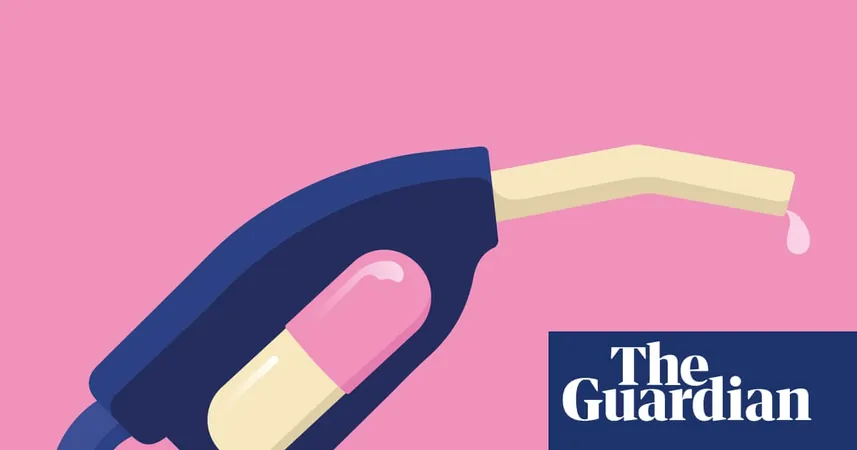
Is Coca-Cola Destroying Football’s Healthy Image?
2025-07-11
Author: Daniel
The Clash of Football and Big Soda
As the world gears up for the exhilarating 2025 Club World Cup, where football legends like Lionel Messi are set to dazzle fans, an unexpected name lurks in the shadows: Coca-Cola. This iconic beverage brand, long tied to FIFA since 1978, has a presence that starkly contrasts with the health-focused image of football.
Coca-Cola: Partner or Poison?
While FIFA promotes health and fitness through its tournaments, Coca-Cola stands as a leading contributor to the global epidemics of obesity and diabetes. How can a company known for sugary drinks share the limelight with athletes celebrated for their physical prowess? It's clear that Coca-Cola does not belong on the same stage.
The Sugary Truth Behind Soda
With products like Minute Maid Lemonade packing as much as 67 grams of sugar in just 20 ounces, the health implications are alarming. Liquid sugar doesn’t satiate our hunger the way solid food does, creating an endless cycle of consumption leading to weight gain and other serious health issues.
Big Soda’s Sinister Strategy
Coca-Cola’s powerful marketing machines specifically target children, infiltrating schools and sports to foster a lifelong addiction to sugary beverages. Over half of American kids consume these drinks daily, setting the stage for lifelong dietary issues. The impact of these sugary habits is profound, tracking into adulthood.
The Environmental Cost of Sweetness
But the implications go beyond personal health; Big Soda is also a significant environmental threat. Teaming up with PepsiCo, Coca-Cola ranks among the largest plastic polluters globally. Remarkably, producing soda uses 27 times more water and releases 11 times more greenhouse gases than tap water.
Greenwashing and Deceptive Marketing
Despite these staggering figures, Coca-Cola attempts to paint itself as a hero, promoting physical activity while ignoring the reality that exercise alone cannot counteract a poor diet. At the 2024 Olympics, the company touted reductions in plastic use, yet much of its so-called eco-friendly initiative merely involved repackaging unhealthy drinks in reusable containers.
Exploiting Emotions to Drive Sales
Coca-Cola’s marketing also plays on emotions, particularly during pivotal sporting events. Their ads evoke feelings of hope and joy, cleverly sidestepping the harmful effects of their sugary products. This manipulation not only exploits sporting events but undermines the ethos of health associated with athletics.
The Call for Change is Growing Stronger
As global attention on football continues to rise—with the last World Cup viewed by over 5 billion people—its governance must also reflect health-conscious values. The ongoing Kick Big Soda Out of Sport campaign, supported by over 350,000 individuals and 97 health organizations, advocates for the termination of Coca-Cola’s sponsorship.
A Pivotal Moment for FIFA
Football is at a crossroads. Will FIFA choose to align with corporate giants like Coca-Cola for profit, or will it prioritize the health of its fans, players, and environment? The evidence is overwhelmingly against Big Soda; it’s high time for a ban. The future of healthy football hangs in the balance.




 Brasil (PT)
Brasil (PT)
 Canada (EN)
Canada (EN)
 Chile (ES)
Chile (ES)
 Česko (CS)
Česko (CS)
 대한민국 (KO)
대한민국 (KO)
 España (ES)
España (ES)
 France (FR)
France (FR)
 Hong Kong (EN)
Hong Kong (EN)
 Italia (IT)
Italia (IT)
 日本 (JA)
日本 (JA)
 Magyarország (HU)
Magyarország (HU)
 Norge (NO)
Norge (NO)
 Polska (PL)
Polska (PL)
 Schweiz (DE)
Schweiz (DE)
 Singapore (EN)
Singapore (EN)
 Sverige (SV)
Sverige (SV)
 Suomi (FI)
Suomi (FI)
 Türkiye (TR)
Türkiye (TR)
 الإمارات العربية المتحدة (AR)
الإمارات العربية المتحدة (AR)